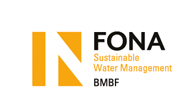GroundCare
Parameterisation and quantification of ecosystem services as a basis for sustainable groundwater management
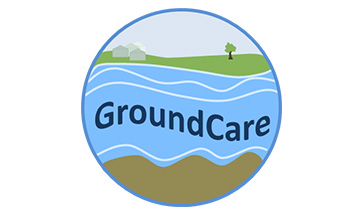
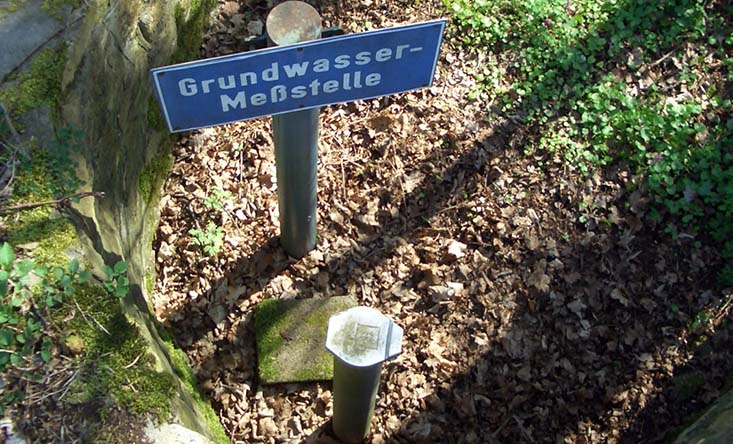
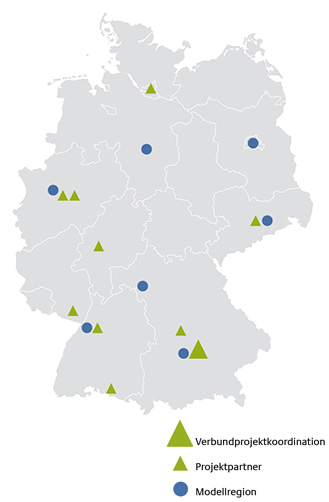
NEW BIOINDICATORS AND STANDARDISED METHODS FOR GROUNDWATER ASSESSMENT
Groundwater is the most important resource for drinking water. However, anthropogenic pollution as well as accidents, changes in land use, and extreme weather events are compromising groundwater quality in many places. No ecological indicators and standardised methods currently exist to assess either the status and stress tolerance of groundwater ecosystems, or their capacity to provide essential ecosystem services. The main objective of the joint project GroundCare is to evaluate the functional capacity of groundwater ecosystems and to identify ecological criteria suitable for biomonitoring. An ecologically sound, integrative groundwater quality assessment scheme will allow local authorities to target, manage and protect groundwater ecosystems in a cost-efficient manner. Further challenges include developing and standardising groundwater sampling procedures, and developing a groundwater-specific ecotoxicological online-monitoring system. The consortium partners will tackle contaminated and non-contaminated groundwater ecosystems in a concerted manner. Their focus will be on the functional diversity of microbial and faunistic biocoenoses as well as on important services provided by groundwater ecosystems.
GOALS
Goal of the joint project is to develop, test and standardise biological-ecological criteria and methods for monitoring groundwater quality, ecosystem status, and services in a practical manner. Protocols and monitoring schemes will be made available to environmental authorities and water managers. In more detail, GroundCare focuses on:
- Developing, validating and standardising innovative criteria and methods for describing the ecological status of groundwater
- Standardising sampling protocols and implementing assessment criteria for microbiological, molecular and faunistic groundwater evaluation
- Evaluating ecosystem services with respect to different kinds of stress, e.g. extreme weather events, contamination with micropollutants
- Developing an online ecotox monitor, tested with groundwater fauna and contaminants of emerging concern in groundwater (e.g. pharmaceuticals)
- Compiling a guideline for the practical use of groundwater ecological assessment schemes
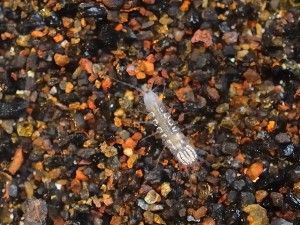
Prosaellus cavaticus
MODEL REGIONS
- City of Augsburg, Lechaue waterworks
- City of Berlin, waterworks of the Berlin water utilities
- Northern Ruhr district and western Münster region, Halterner Sande
- City of Würzburg, waterworks Mergentheimer Straße
- City of Hanover, waterworks Fuhrberger Feld
- City of Dresden, contaminated site Coschütz/Gittersee
- Stürmlinger sand pits near the city of Karlsruhe, landfill site
Key messages
- A set of ecological assessment- and monitoring criteria for groundwater was developed based on methods for surface water bodies which comply with WFD requirements. This includes integrated microbiological parameters as well as a characterisation and assessment of the groundwater fauna.
- Amendment of aspects missing in established sampling guidelines, i.e. molecular-biological analyses and the collection of groundwater fauna.
- The ecological reference status for selected aquifers in Germany was defined with the aid of microbiological and faunistic criteria.
- A market-ready biomonitor for the groundwater-specific ecotoxicological assessment of acute- and chronic pollutant contamination and for online quality monitoring is available.
- A sequence databank and DNA barcoding protocols were set up for selected groundwater metazoa.
- The development of a pressure-retaining sampling system for the extraction of groundwater to address specific research questions under groundwater conditions was concluded.
Further Information
Kontakt
-
Helmholtz Zentrum München – Deutsches Forschungszentrum für Gesundheit und Umwelt
Institut für Grundwasserökologie
Dr. Christian Griebler
T: +49 89 3187 2564
M: christian.griebler@helmholtz-muenchen.de -
Frau Dr. Astrid Meyer
T: +49 89 3187 2602
M: astrid.meyer@helmholtz-muenchen.de
Projektpartner
- Helmholtz Zentrum München – Deutsches Forschungszentrum für Gesundheit und Umwelt
- Bayerisches Landesamt für Umwelt
- BGD ECOSAX GmbH
- DVGW-Forschungsstelle Technische Universität Hamburg-Harburg
- DVGW-Technologiezentrum Wasser
- GELSENWASSER AG
- Institut für Grundwasserökologie IGÖ GmbH
- Justus-Liebig-Universität Gießen
- Limco International GmbH
- Westfälische Wasser- und Umweltanalytik GmbH


 Deutsch
Deutsch

